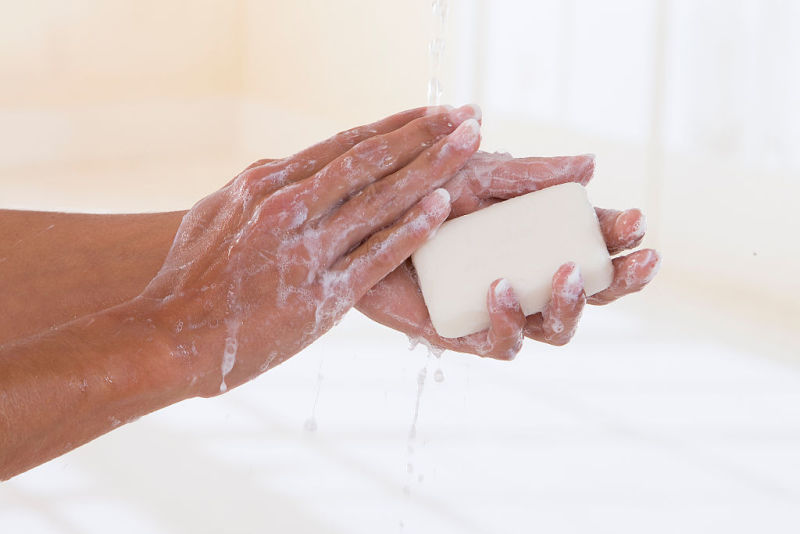-
Tips for becoming a good boxer - November 6, 2020
-
7 expert tips for making your hens night a memorable one - November 6, 2020
-
5 reasons to host your Christmas party on a cruise boat - November 6, 2020
-
What to do when you’re charged with a crime - November 6, 2020
-
Should you get one or multiple dogs? Here’s all you need to know - November 3, 2020
-
A Guide: How to Build Your Very Own Magic Mirror - February 14, 2019
-
Our Top Inspirational Baseball Stars - November 24, 2018
-
Five Tech Tools That Will Help You Turn Your Blog into a Business - November 24, 2018
-
How to Indulge on Vacation without Expanding Your Waist - November 9, 2018
-
5 Strategies for Businesses to Appeal to Today’s Increasingly Mobile-Crazed Customers - November 9, 2018
FDA oders antibacterials removed from consumer soaps
Korean scientists examined the effect of triclosan, the active antiseptic ingredient most commonly used in these types of soaps.
Advertisement
In 2013, the agency proposed a rule issuing new requirements to investigate the safety of several ingredients in the soaps, including the relatively common ingredients triclosan and triclocarbon, reiterating the concerns in calls issued in 2015 to manufacturers of healthcare antiseptics and again in June regarding hand sanitizers.
FDA officials came to their determination because the industry was unable to provide them with adequate data to demonstrate that these products are safe when they are used over the long term and every day, and to show that they are more effective than plain soap and water at preventing infection.
The ingredients targeted by the FDA could pose health risks like bacterial resistance or hormonal effects.
The Food and Drug Administration’s Dr. Janet Woodcock says there’s no scientific evidence the products are any better than plain soap and water.
Though Australian manufacturers who don’t export to the United States will be largely unaffected by this ruling, it’s a good reminder for the average consumer that the more expensive antibacterial stuff you’re eyeing may not be worth the extra buck.
“Consumers can continue to use antibacterial soaps with confidence as they have for decades in millions of homes, offices, schools, daycare centers and other commercial settings”.
Manufacturers have one year to comply with the ruling and some manufacturers have already begun removing these ingredients from their products, the agency said.
Antibacterial soaps are most often sold in liquid form, but not all liquid soap is classified as antibacterial.
The pharmacist at Custom Care recommends the method that’s tried and true: washing your hands with soap and water for about 30 seconds. Ultimately, the government agreed to publish its findings only after a three-year legal battle with an environmental group, the Natural Resources Defence Council, which accused the FDA of delaying a decision on the safety of triclosan.
There’s no proof yet that triclosan is unsafe to people, but some animal studies suggest high doses can affect the way hormones work in the body.
Antibacterial soaps and washes are popular, but the U.S.
The FDA deferred by a year its ruling on three additional ingredients used in consumer wash products – benzalkonium chloride, benzethonium chloride and chloroxylenol (PCMX) – to allow for the development and submission of new safety and effectiveness data for these ingredients.
Advertisement
Manufacturers are conducting research to fill data gaps identified by the FDA, Sansoni said.





























